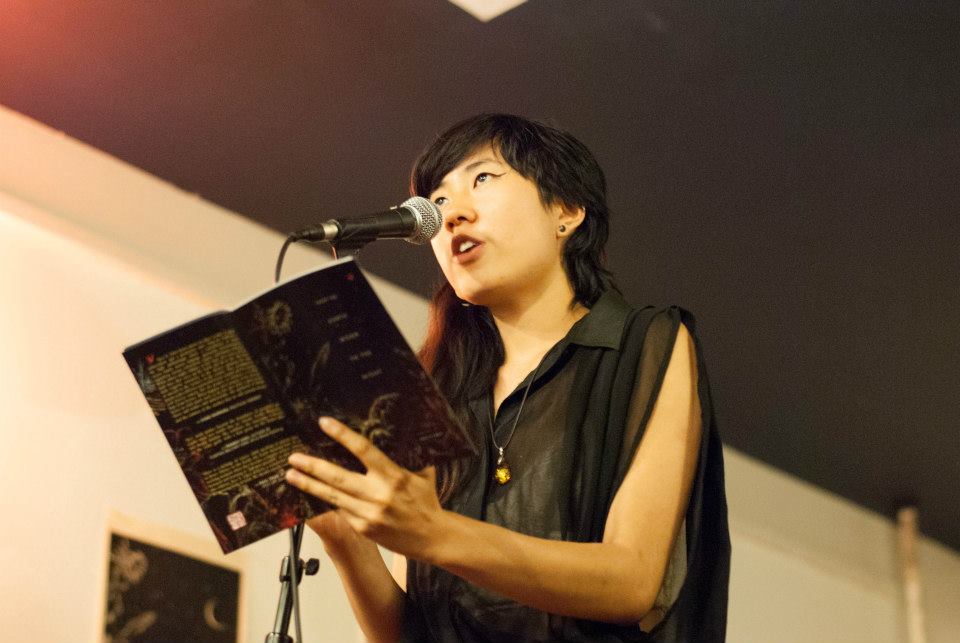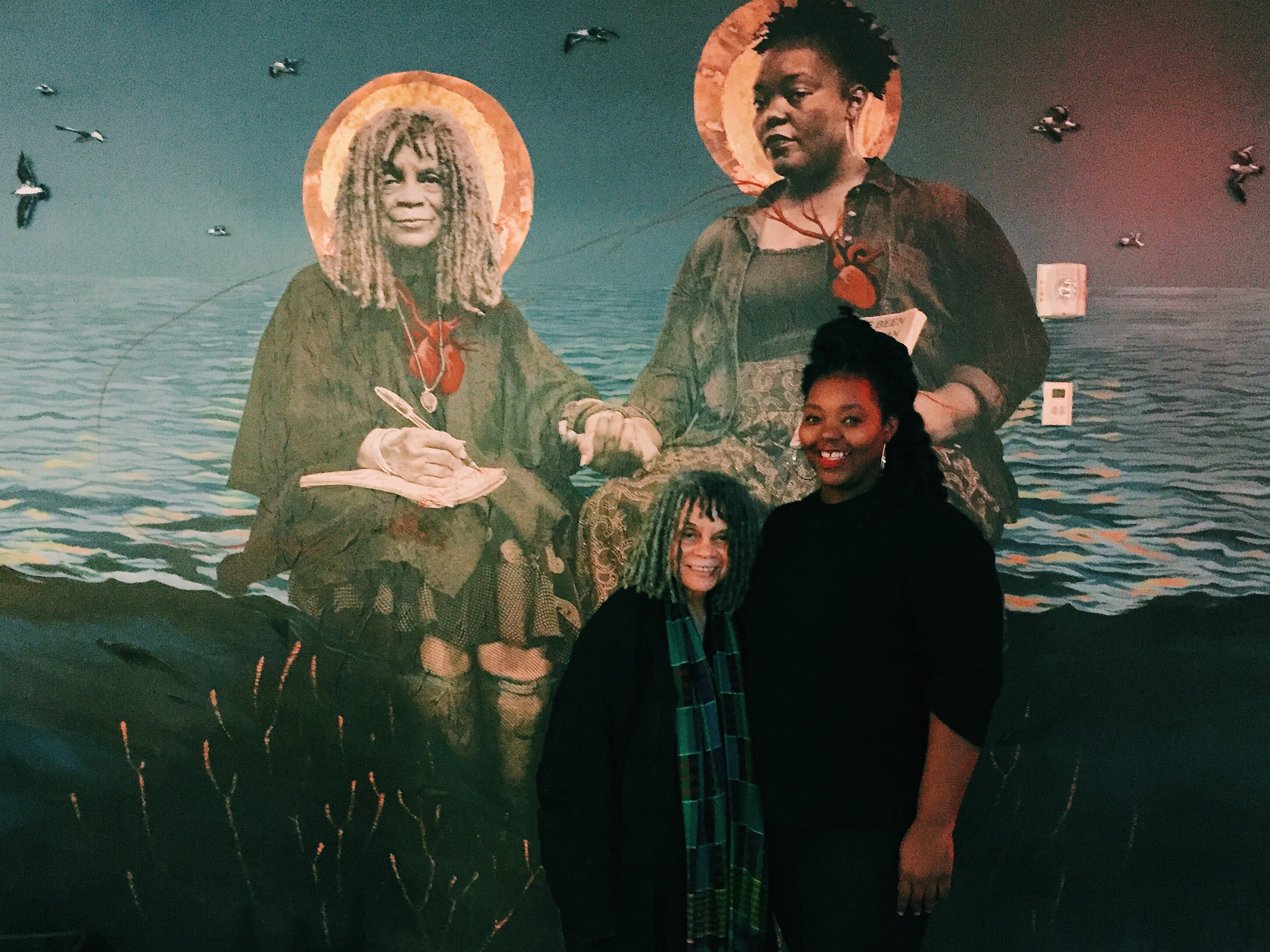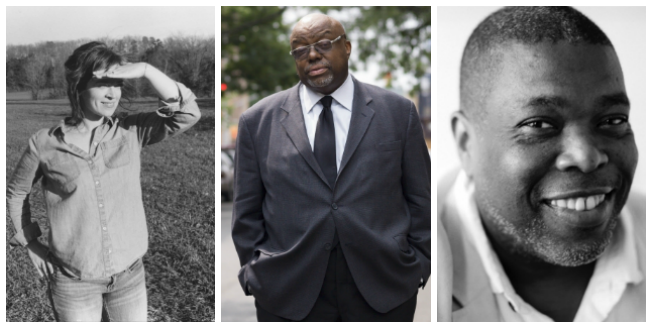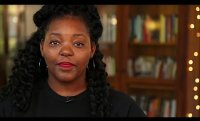Genre: Poetry
Cigar Box Banjo
"Blind Willie Johnson could coax / music from a single string. God plucked a rib / and found a woman." Kim Addonizio's poem "Cigar Box Banjo" is adapted by Danny Madden for this installment from Motionpoems.
Robert Bly: A Thousand Years of Joy
"Robert, you've wasted so much of your life / Sitting indoors to write poems. Would you / Do that again? I would, a thousand times." In Robert Bly: A Thousand Years of Joy, director Haydn Reiss tracks the evolution of the prolific, mystical poet and his impact on American poetry through interviews with Louise Erdrich, Edward Hirsch, Tracy K. Smith, and others.
Pandora’s Box
In the story of Pandora’s box in Greek mythology, Pandora, the first human woman created by the gods, opens the lid of a container, thereby allowing all of the evils stored inside to escape out into the world. In contemporary colloquial usage, to “open a Pandora’s box” refers to an action that seems small or harmless but ultimately proves to have disastrous consequences. Write a poem that starts with a seemingly innocent action, which then unexpectedly unleashes a dramatic chain of events. For inspiration, listen to Ada Limón’s poem “The Last Move.”
Ruth Bader Ginsburg to Write Book, Man Booker International Prize Longlist Announced, and More
National Book Foundation’s new executive director Lisa Lucas talks publishing and diversity; the politics behind dictionaries; the Tournament of Books kicks off; and other news.
Fighting for the Possibility of Creative Work Featuring Jess X. Chen
Jess X. Chen is a filmmaker, multidisciplinary artist/activist and nationally-touring poet. A member of the Justseeds Artists' Cooperative, her films and artwork have been featured in the Asian American International Film Festival, the Huffington Post, the UN Human Rights Council, and the Asian Cinevision Diversity Screening at the New York Times. Her poetry has appeared in Nepantla: A Journal For Queer Poets of Color, Hyphen, the Margins, and is forthcoming in the Offing. Through art, organizing and education, she is working toward a future where migrant and indigenous youth of color see themselves in stories, whole and heroic, on the big screen, and then grow up to direct their own. You can follow and support her journey at www.jessxchen.com and @jessxchen on Instagram.

When I graduated from the Rhode Island School of Design, I decided to pursue the performance of my poetry, the directing of my films, and the teaching of youth art education full time. Growing up with an immense stutter that blocked my ability to speak, and constantly being steered away from the wildness of my own imagination by family members, teachers, and mainstream expressions, I never thought this journey would be possible. Along with the father figures who have been absent from my life, I’ve been uprooted from almost every place I’ve called home, and the content of my work—queer, diasporic, and demanding of migrant and ecological justice—makes it hard for me to survive financially in this world, yet I have still found a way to pursue my art.
Through poetry, I am reminded that if my ancestors have survived their severance from a culture, and my parents still sing the folk songs of their motherland on a karaoke machine, then the human voice must hold all the resilience in the world. Through poetry I have penned my own emotional history and examined that the human body’s ability to rise again and again holds a hope beyond the logic of our rational world. When the windstorms blow me off my feet and all the starlings in the forest take flight, I shudder to discover the eye of the storm in my own words.
Support from Poets & Writers has played an important part in this journey. It has funded many of my poetry performances in noninstitutional spaces, women of color reading series and multidisciplinary writing workshops with youth of color across the country, regardless of their size. Poets & Writers tells me that these little poems, these workshops are worth several hundred dollars: enough money for a week of meals, a week of NYC rent, or a flight to visit a long-distance lover. In the grand scheme of things, this support is huge for emerging writers of color who constantly spend their first years struggling to balance multiple unrelated or semi-related jobs to make their creative work possible. Because there is no limit to the amount of times I can ask an organization to apply for my funding, Poets & Writers helps set a new standard urging the importance of compensating writers for their cultural work.

Poets & Writers recently supported a reading where I had the immense honor of opening for black woman poets, Mahogany Browne and Sonia Sanchez at BRIC Arts Media’s Stoop Series. The reading was also the unveiling of a collaborative mural in the same location cocreated by artist and best friend, Jetsonorama, and I that celebrates Sonia and Mahogany’s intergenerational black sisterhood and their radiant oral tradition. Beginning with an open mic featuring local woman poets of color, this multidisciplinary reading and mural unveiling drew an audience of over three hundred people. Most of them were people of color ranging vastly in age and style. This event is amongst the imaginings of spaces I’d dreamt of as a young girl to someday grow up and be a part of.
I’m learning that dreaming cannot sustain itself without the support of community, compensation, and loving creative spaces that each honor the diverse needs of the artist. Thank you for helping with the sustainment of my dreaming. Today, I am working toward a dream where migrant, indigenous, and LGBTQ people of color can see themselves and their own imaginations, whole and heroic on the blank page and big screen, and then grow up to write and direct their own.
You can support this dream by following my art, poetry and film projects on Instagram @jessxchen. You can also check out the work of two incredible incredible queer poets and activists of color: Kay Ulanday Barrett and Sonia Guinansaca who have both taught me so much.
Support for Readings & Workshops in New York City is provided, in part, by public funds from the New York State Council on the Arts, and the New York City Department of Cultural Affairs, with additional support from the Louis & Anne Abrons Foundation, the Axe-Houghton Foundation, the A.K. Starr Charitable Trust, and the Friends of Poets & Writers.
Top photo: Jess X. Chen (Credit: Kat Waterman). Bottom photo: Sonia Sanchez and Mahogany Brown in front of a mural by Jess X. Chen and Jetsonorama (Credit: Jess X. Chen).A New Color
Visual artists who have been productive over long stretches of time often develop certain periods of work with shared characteristics, such as similar color palettes. For example, Paul Cézanne and Henri Matisse both had dark periods, Pablo Picasso had his blue and rose periods, and Victor Vasarely had a black-and-white period. As we begin to think about the year's transition from winter to spring, bringing along with it seasonal changes in light and sound, consider embarking on a new period of your own work. Write a series of short poems inspired by your observations of the different colors, moods, and scenery around you that signal the forthcoming spring season. To begin a green period, for example, what might be your key points of inspiration, in terms of imagery and vocabulary?
Mahogany L. Browne
Mahogany L. Browne reads her poem “Black Girl Magic” for PBS NewHour’s “Brief but Spectacular” series. Browne is a poet and author coordinating the Women of the World Poetry Slam at Pratt Institute in Brooklyn.
Windham Campbell Prize Winners Announced
The recipients of the 2016 Windham Campbell Prizes for Literature have been announced. Administered by Yale’s Beinecke Rare Book & Manuscript Library, the annual awards are given to English-language writers of fiction, nonfiction, and drama for outstanding literary achievement or great potential. Each writer receives $150,000.

The winners in fiction are Tessa Hadley (U.K.), C. E. Morgan (U.S.), and Jerry Pinto (India); the winners in nonfiction are Hilton Als (U.S.), Stanley Crouch (U.S.), and Helen Garner (Australia); and the winners in drama are Branden Jacobs-Jenkins (U.S.), Hannah Moscovitch (Canada), and Abbie Spallen (Ireland).
The Windham Campbell Prizes were established in 2013 by Donald Windham and Sandy M. Campbell to “call attention to literary achievement and provide writers with the opportunity to focus on their work independent of financial concerns.” The prizes are open to writers from anywhere in the world at all stages of their careers. There is no application process for the prize; the awards are made by a group of nominators, a three-member jury in each category, and a nine-member selection committee. Past winners have included Teju Cole, Geoff Dyer, John Jeremiah Sullivan, James Salter, and Naomi Wallace. The 2017 prizes will expand to include a poetry category.
The winners will receive their prizes during an international literary festival at Yale in September celebrating their work. All festival events are free and open to the public. For more information about the prizes and the 2016 winners, visit the Windham Campbell Prizes website.
Below, watch 2016 nonfiction winner Hilton Als deliver the keynote lecture at last year's Windham Campbell Prizes Festival.
Hilton Als' 2015 Windham-Campbell Lecture from Windham Campbell Prizes on Vimeo.
Photos: C. E. Morgan, Stanley Crouch, Hilton Als.
Women’s History Month
In celebration of Women’s History Month, the folks at Open Road Media put together this clip of some of their authors talking about "the suffragettes, poets, novelists, daughters, and grandmothers whose courage, talent, and dedication serve as daily inspiration in their work."









